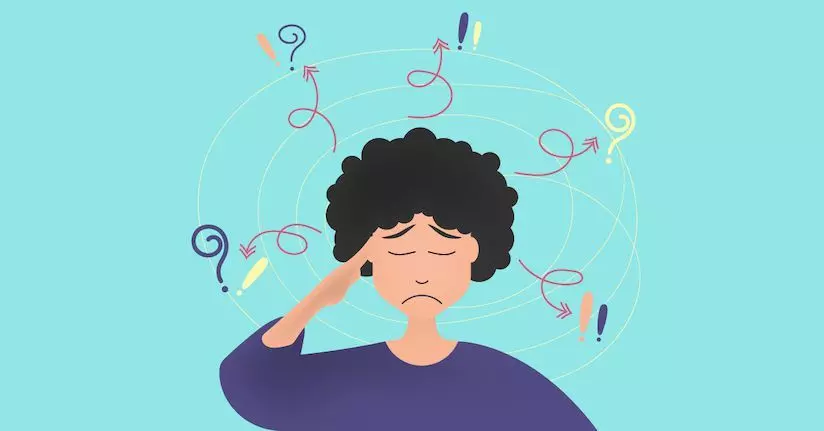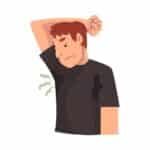Dizziness also known as vertigo is among the most common disorders in medicine, affecting about 20-30% of people worldwide (1) (2).
The incidence of dizziness increases with age and is about two to three times higher in women than in men (3).
Dizziness or lightheadedness can occur due to many reasons which are even related to health or non-health.
If it occurs mostly or causes injury then you should consult your healthcare, and that may be a sign of health issues.

Dehydration
Contents
When there is a shortage of water inside our bodies, it is called dehydration which is common, especially in the summertime.
Dehydration often has reduced blood pressure or lower blood volume, when this happens, blood may not reach your brain properly, this lead to dizziness (4)
However, chronic dehydration can also put people at risk of:
- Type II diabetes
- cancer risk
- urinary tract infection
- high blood pressure
- kidney stone or illness
- obesity
There are lots of summer fruit which is rich in water content such as watermelon, cucumber, oranges, broccoli, etc.
Always drink water, especially before, during, and after coming to the gym, running, and anything else that makes you sweat.
Inner ear issues
Ear issues like infection can lead to swelling in your inner ear, causing dizziness, and trouble in balance.
Dizziness can also be triggered by other ear issues such as:
- Meniere’s disease (a fluid that builds up in the ear) is associated with difficulty in hearing, tinnitus, etc.
- acoustic neuroma (is a benign tumor) that develops on the balance and hearing nerve leading from your inner ear to the brain
- autoimmune inner ear disease
- ear infection
- Vestibular system issue (inner ear organ, connected to the brain), allows you to sense motion, and the problem with that can lead to dizziness.
Low blood pressure
One of the common symptoms of low blood pressure is dizziness or lightheadedness, however chronic low BP can be a serious issue (5).
Dizziness is most frequently caused by lower blood pressure, especially in older adults (6).
Lower blood pressure may be a sign of an underlying health condition, especially when its drops suddenly (7)
In addition, low blood pressure may symptoms include:
- blurred vision
- weakness
- fainting
- difficulty in focusing on work
- nausea
- dizziness or lightheadedness
Certain medicine use
Several drugs and environmental chemicals such as lead, and mercury, can often cause damage to the inner ear which leads to vertigo (8) (9)
A study shows that certain medications can lead to dizziness such as:
- Anti-hypertensives
- antibiotics
It was found that drugs that belong to the antihypertensives may also cause dizziness as an adverse effect (10)
- Anti-depressants
- anti-psychotics
- anti-inflammatories.
It was found that drugs with anti-convulsant agents, such as oxcarbazepine, carbamazepine, and lacosamide may cause dizziness (11)
Heat exhaustion
Dizziness and confusion are common during heat exhaustion when the body overheats and can’t cool itself down.
It may lead to dehydration, due to excessive sweating, which commonly happens in a hot environment.
Before heat exhaustion, you may these signs, like developing a red rash or heat cramps other symptoms include:
- Nausea
- fever
- weak
- fatigue
- blurry vision
- headache
- rapid or shallow breaths
- fast heartbeat
- swollen ankles, feet, and hands
Heat exhaustion is different from heat stroke, it is more serious than heat exhaustion, (it can quickly turn into heat stroke if left untreated)
Anemia
Iron deficiency, there is not enough iron in the blood, and dizziness, fatigue, headache, etc, are one of the symptoms.
“lightheadedness and dizziness” is the usual complaints of hyperventilation (12)
Anemia is a condition, in which person has a lacks enough healthy Red blood cells, which can lead to an irregular heartbeat, and causes a heart attack.
It has other common symptoms include:
- Weakness
- Body pain
- Shortness in breathing
If the level goes too low then severe symptoms can be seen in it.
- Anxiety
- Trouble and pain during breathing, even during sitting
- hair falling
- Low concentration
- Irritability
- Headache
- Pica (is a symptom of iron deficiency)
- Koilonychia
- Pale skin
- Increase heart rate
- High Blood Pressure
Cardiovascular disease
The study, result shown that suggest that dizziness from primary cardiovascular disease may often be vertigo.
When the blood supply throughout the body is reduced or blood circulation is reduced, the blood does not reach the brain properly.
Then usually person experiences vertigo and dizziness.
The studies estimated that 10% of patients with primary cardiovascular disease experienced dizziness as a dominant or presenting symptom (13).
Lower Blood sugar level
When a person has a lower blood sugar level also known as hypoglycemia, can lead to dizziness, which occurs due to brain cells malfunctioning.
There are some reasons which can be a reason for lower blood sugar levels including:
- Diabetes
- skipping meals
- insulin overproduction
- hormone deficiency
- certain medication intakes like insulin or aspirin
- excessive alcohol
Severe hypoglycemia is a serious condition that can cause a seizure (a sudden, uncontrolled electrical disturbance in the brain)
Hypoglycemia can make you feel shaky, lightheaded, or hungry.
Migraine headache
Headache is a very common condition that many people across the world experience at some point in their life.
Migraine headaches start on one side of the head and may spread to both sides of the head, and this is related to vision, sound, and light.
Vertigo or dizziness is referred to as vestibular migraine (a nervous system problem) for those who have a history of migraine.
There is some reason that triggers migraine headache which includes:
- Caffeine, MsG
- Hard alcohol consumption
- Lack of sleep
- Any type of stress
- Excessive medicine use may also lead to migraine
Anxiety disorder
Anxiety or disorder often causes a feeling of dizziness, among other symptoms, due to sudden changes in BP, leading to lightheadedness.
According to research, stress hormones, like cortisol, and other compounds can influence vestibular function and can result in vertigo.
Dizziness is a common symptom of acute and chronic anxiety.
Vertigo may also increase the risk of anxiety, because they may worry about their health and fear falling.
Check Out – Anxiety, and Stress Can Cause To Weak Immune System?
Other common causes
- Excessive alcohol use
- cardiomyopathy
- excessive exercise
- Parkinson’s disease (a brain disorder that causes uncontrolled movement in the body, and leads to difficulty in balance and coordination)
- carbon monoxide poisoning (occurs when carbon monoxide builds up in your bloodstream)
- lower sugar level
- circulation problems
- motion sickness
- infections like – viral, ear, covid-19
- damage in the brain and spinal cord
- stroke
- arrhythmia

